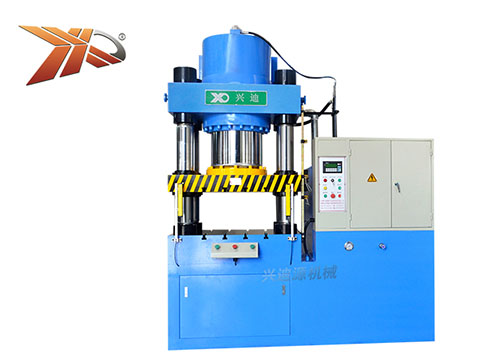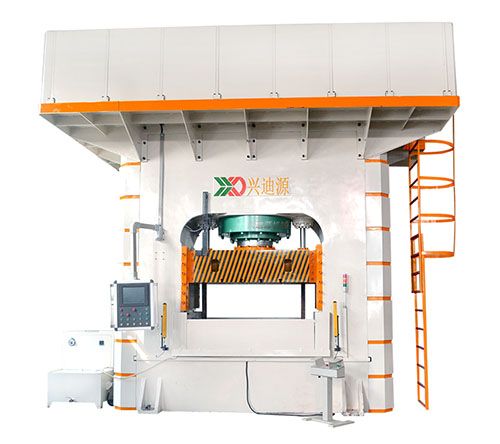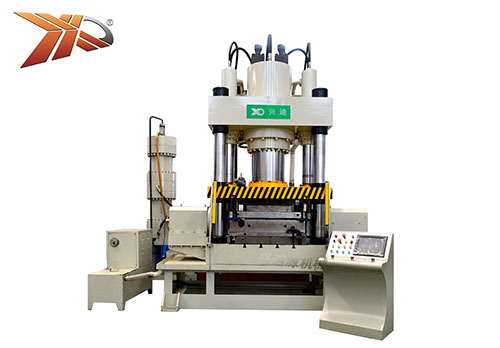When air mixes with the hydraulic oil in the cylinder, it creates conditions for extreme phenomena (called "hydraulic diesel"). This happens when air bubbles mixed with oil are subjected to extremely high pressure, causing the bubbles to explode in the same way that diesel ignites in the engine cylinder. This articleZhongyou Heavy IndustryThe causes and preventive measures of "diesel" in hydraulic cylinder are brought.
Reasons for the occurrence of "dieselization" in 1. hydraulic cylinders:

When air mixes with the hydraulic oil in the cylinder, it creates conditions for extreme phenomena (called "hydraulic diesel"). This happens when air bubbles mixed with oil are subjected to extremely high pressure, causing the bubbles to explode in the same way that diesel ignites in the engine cylinder. Does this sound bad for you? It is! Tiny explosive bubbles can quickly burn the cylinder sealing ring and cause hardening, cracking and failure of the cylinder sealing ring. In this article, we will explore why this happens and how to avoid "diesel" in hydraulic cylinders ".
"Diesel" in hydraulic cylinders is caused by the air in the hydraulic fluid:
A diesel condition occurs when air is allowed to enter the hydraulic system. There are many ways this can happen. In addition to the obvious leakage, hydraulic oil naturally contains dissolved air. This is usually not a problem, but in some cases, dissolved air can be drawn from the oil to form bubbles (this phenomenon is called cavitation), thus laying the foundation for the conditions in which diesel oil occurs.
1) Air is introduced during the filling or flushing process.
Unpurged air in the cylinder during commissioning may cause diesel. Filling or flushing are both opportunities for air to enter the system, so steps must be taken to minimize this possibility.
2) Bubbles caused by negative pressure.
If the system design is insufficient, when the cylinder is retracted, air may be drawn from the cylinder rod seal under negative pressure. The negative pressure can also cause the solubility of the oil to decrease, allowing the dissolved air to escape and form air pockets.
3) The hose or joint is loose.
All connection points are the primary locations for leakage.
4) The filter and filter screen are blocked.
Obstructions in hydraulic systems (such as those caused by filter clogging) can cause extreme pressure drops, which can cause the solubility of the oil to decrease, causing the dissolved air to form bubbles.
5) float valve failure.
Controls the descent of the hydraulic cylinder under load. If the float valve fails, a negative pressure will be generated in the cylinder, so that air is sucked under the piston rod seal of the cylinder.
6) Pump inlet problem.
A leak in the suction line or a low tank level will allow free air to enter the pump inlet. When the free air leaves the pump and the oil is compressed, it will become entrained air.
7) hydraulic pump components wear.
Wear of pump shaft seals and other components increases the likelihood of air being drawn into the system.
2. measures to avoid "dieselization" in hydraulic cylinders:

When bubbles of air and oil are allowed to form in the hydraulic oil, conditions are set for an explosive event, which are in principle the same as the combustion process that powers a diesel engine. This phenomenon can quickly burn the hydraulic seal and cause the hydraulic cylinder to fail. So, now that you know how bubbles form in the hydraulic oil and set the diesel conditions, let us consider some steps that can be taken to minimize the air entering the system.
1) Before starting, please pre-fill and deflate the hydraulic system. Before connecting the hose, fill the cylinder with clean hydraulic oil through the access port.
2) Carefully remove all air from the cylinder by cycling the cylinder several times to make it empty for the entire stroke length.
3) Check the operation and adjustment of the valve at specified intervals.
4) Check and maintain all working parts of the cylinder according to the prescribed preventive maintenance schedule.
5) Ensure that the design of the gas cylinder meets the application requirements to ensure the best performance and reduce negative pressure events.
Always following the correct commissioning and maintenance procedures will help minimize the presence of air in the hydraulic cylinder and reduce the possibility of hydraulic diesel. This is another reason for thorough inspection and repair whenever a cylinder seal leak is encountered. Because the replacement of burned seals without solving the basic diesel usually requires another repair in a short time.
[Zhongyou Heavy Industry Hydraulic Machine Equipment Advantage]]
Zhongyou Heavy Industry takes fluid pressure forming technology as its core, and its leading products include: internal high pressure forming equipment, plate filling forming equipment, pipe parts hydroforming equipment, water expansion hydroforming equipment, multi-station connected hydraulic deep drawing equipment, four-column hydraulic press equipment, frame hydraulic press equipment, etc. It can design and manufacture special non-standard hydraulic equipment, non-standard oil cylinders, non-standard hydraulic systems and automatic transmission systems according to customer requirements.

The hydraulic press equipment produced by Zhongyou Heavy Industry is widely used in aerospace, nuclear power, petrochemical, auto parts, bicycle parts, hardware products, instrumentation, medical equipment, household appliances, household utensils, sanitary kitchenware and other manufacturing industries.










